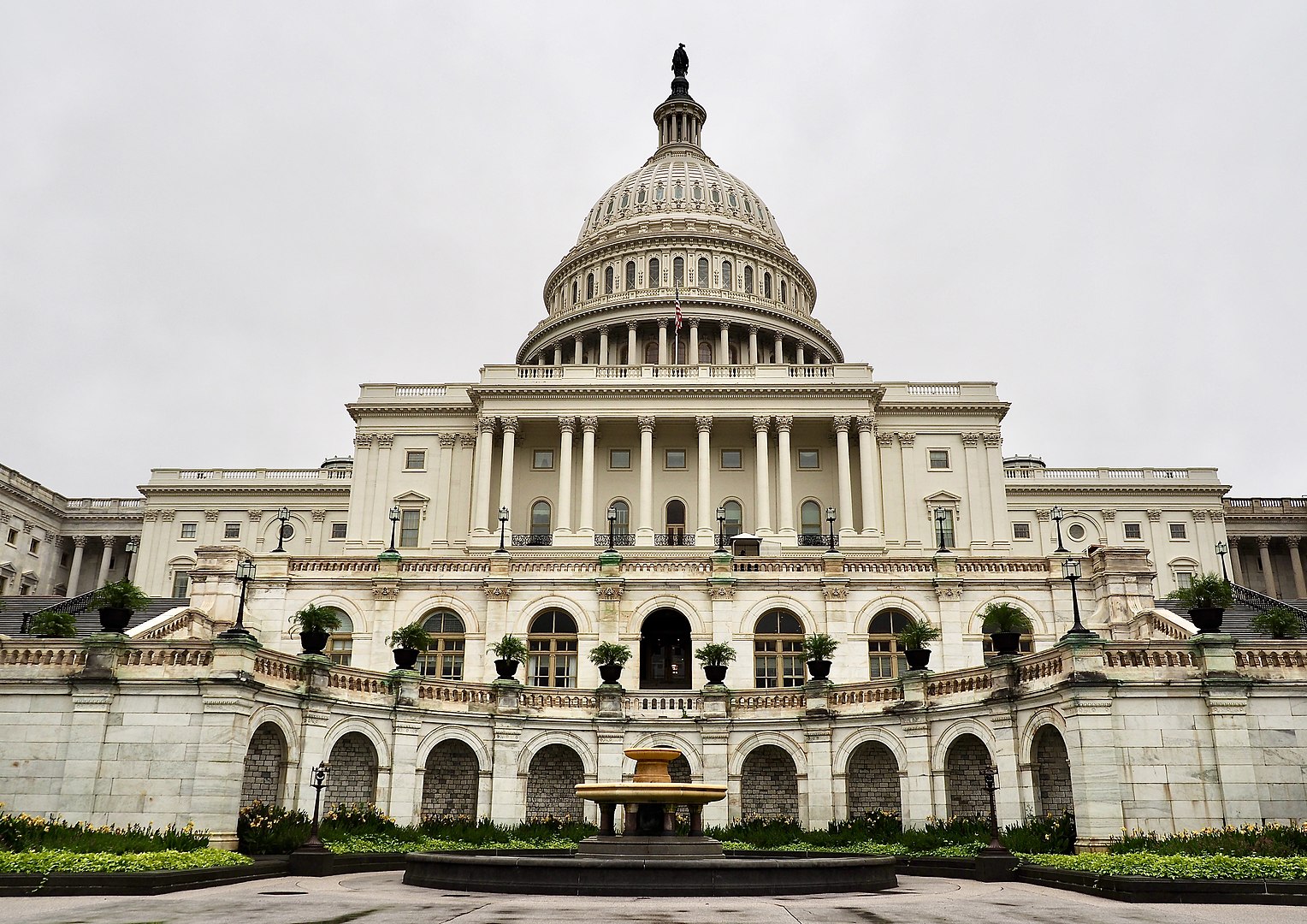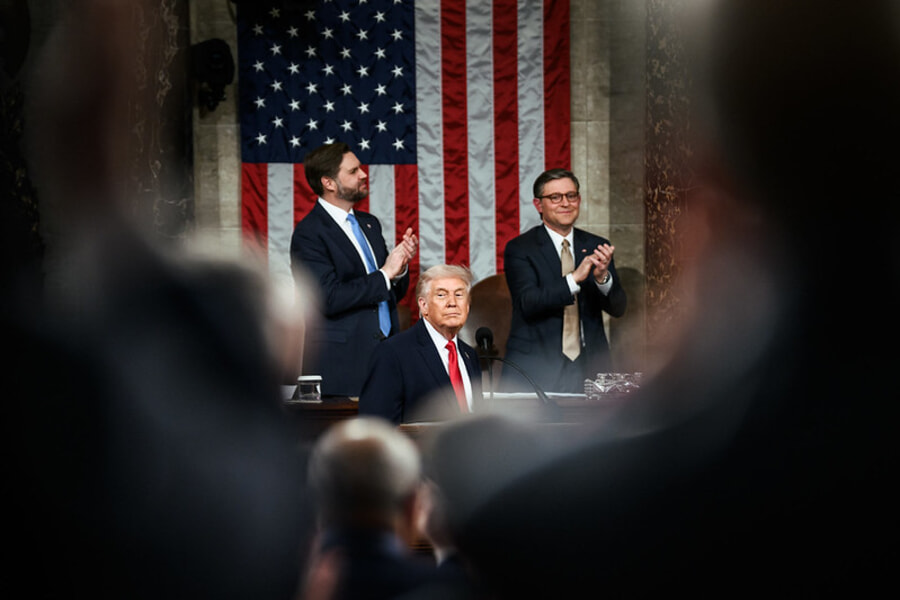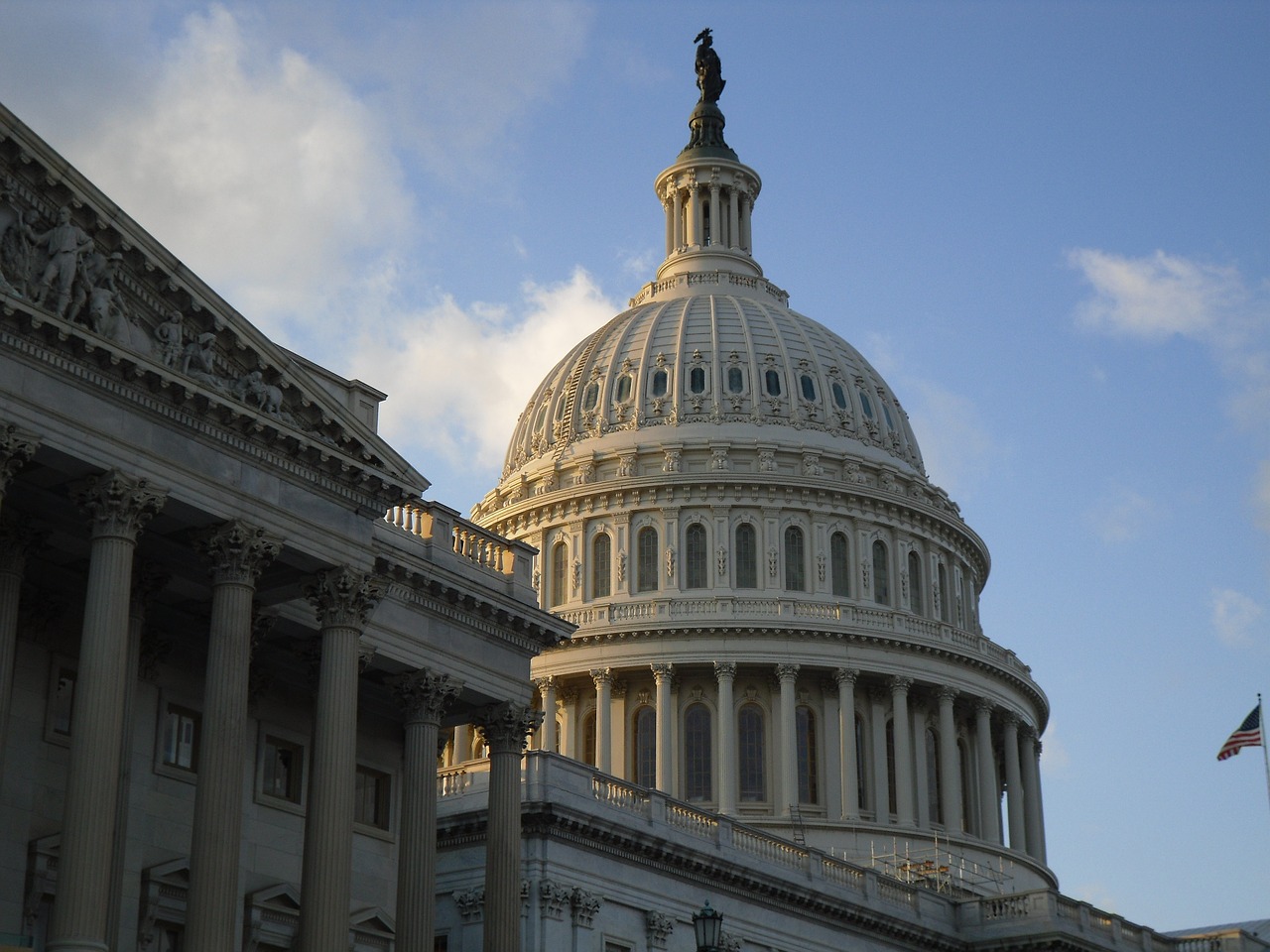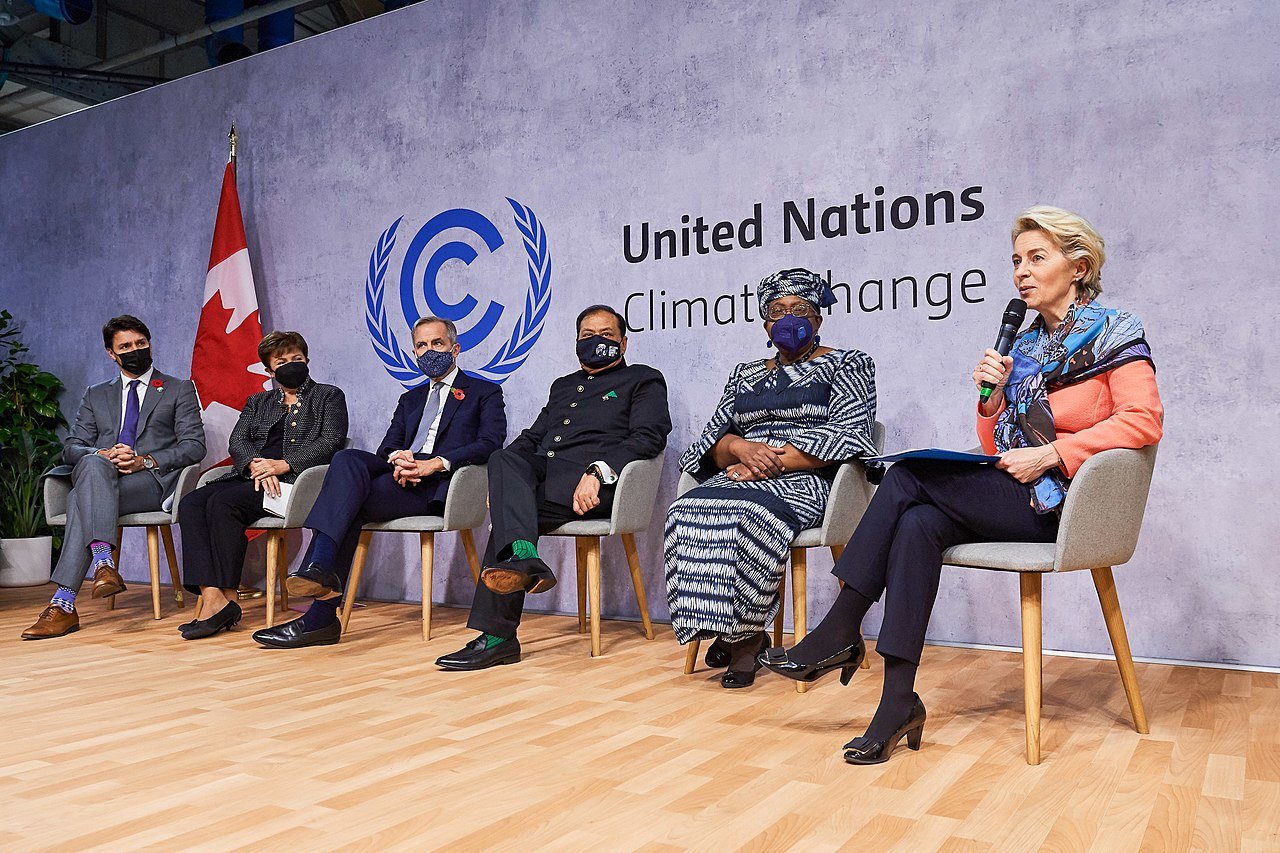Past Pocket Rescissions Are Not Precedents for Power Vought Claims
A deeper look at the examples cited by Trump’s OMB and how Congress fought back against those late rescissions from Presidents Ford and Carter.

This summer, Office of Management and Budget (OMB) Director Russell Vought said he intends to try to permanently cut federal funding without first getting approval from Congress by deploying a tactic he calls a “pocket rescission.”
Vought’s assertion that the president may “pocket rescind” funds—that is, impound and cause to expire forever—rests on a theory that OMB advanced, and the Government Accountability Office (GAO) rejected, in 2018. According to OMB, because the “text of the [Impoundment Control Act (ICA)] places no limit on how late in the fiscal year a President may propose funds for rescission or withhold funds pending Congressional consideration of a rescission proposal,” the president may withhold funds through their date of expiration.
In general, when determining the meaning of a statute, courts look first to its text. If the text is ambiguous, courts may look to past agency legal interpretations and actions to inform their interpretation of the statute. Similarly, in adjudicating separation of powers cases, courts often consider historical evidence. But for such practice to be treated as a “gloss” on the text of the Constitution, it must be—to borrow from Justice Frankfurter’s concurrence in Youngstown—“systematic” and “unbroken,” “long pursued to the knowledge of the Congress and never before questioned.”
Although the text of the ICA itself precludes the need to consult past practice to decide whether the president may rely on the act’s procedures to withhold funds through their date of expiration, a closer look at the historical examples cited by the Trump OMB in the past illustrates the extent to which Vought’s proposal deviates from past presidential practice, and provides some helpful precedent to guide Congress in responding to this attempt to steal its power of the purse.
Vought’s Interpretation of the ICA vs. GAO
Vought claims the “Impoundment Control Act itself allows for a procedure” where presidents may propose rescissions so late in the year that the president’s withholding of funds during the 45 days provided for congressional consideration of the cuts causes the funds to expire “without the bill actually being passed.” Even Vought acknowledges that this end-run around Congress “has been rarely used.”
Vought’s proposed reading of the ICA directly conflicts with the text of the statute, which states that funds the president proposes for rescission “shall be made available for obligation unless,” within 45 days of continuous session, “the Congress has completed action on a rescission bill rescinding all or part of the amount proposed.” By requiring the executive branch to obligate funds unless Congress acts, the law on its face precludes the kind of withholding Vought claims to be able to undertake.
This is one of several points GAO made in 2018, when it wholly rejected Vought’s theory. Specifically, GAO found that the “statutory text and legislative history of the ICA, Supreme Court case law, and the overarching constitutional framework of the legislative and executive powers provide no basis to interpret the ICA as a mechanism by which the President may unilaterally abridge the enacted period of availability of a fixed-period appropriation.” GAO explained that while initially the agency had simply acknowledged funds expiring if a 45-day period for congressional consideration extended beyond the date the funds expired, in the intervening years two decisions from the Supreme Court—INS v. Chadha, on the legislative veto, and Clinton v. City of New York, on the line item veto—made clear that the “the Constitution vests the President with authority to ‘initiate and influence legislative proposals.’” A special message proposing rescissions, GAO determined, is one such legislative proposal. And a legislative proposal, as such, cannot effect a change to the underlying appropriations law as previously passed by Congress and signed by the president—not without a new law making an amendment.
Vought’s Purported Examples of Past Pocket Rescissions
Perhaps anticipating these objections, Trump’s OMB has argued that past examples of pocket rescissions provide support for their interpretation of the law. In a 2018 letter, OMB pointed to four instances in which Presidents Gerald Ford and Jimmy Carter withheld funds through their expiration date following the submission of rescission proposals—and GAO’s alleged acceptance of those actions—as evidence supporting OMB’s interpretation of the ICA.
The Ford Administration
The Trump OMB pointed to Ford’s July 25, 1975, special message proposing to rescind funds for two Community Services Administration (CSA) programs as past examples of a pocket rescission. The history and context make clear, however, that this incident does not show pocket rescissions as an established use of a “provision” of the ICA. First, Congress at the time objected to the tardiness of the rescission, not just taking time to pass legislation rejecting the request (albeit late themselves) but then passing legislation to overturn it. Second, while GAO at the time may not have objected to the practice of a late rescission leading to expired funds, OMB denied that the timing was deliberate and denied that late request should set any kind of precedent for the ICA.
The proposals sought to cut $2.5 million in annual funds from research and demonstration within the economic opportunity program and proposed slashing $7.5 million in annual funds from the community economic development program within CSA’s economic opportunity program. Both funds were set to expire about 67 days later, on Sept. 30, 1975. Congress rejected these two proposed rescissions on Oct. 2, 1975, two days after the funds expired. While those funds lapsed temporarily, both the House and Senate Appropriations Committees “urge[d]” the administration to “immediately obligate” those funds “before September 30, 1975 to avoid the lapsing of these funds back to the Treasury.”
What Congress did next provides a precedent they should consider revisiting today: In the 1976 Departments of Labor and Health, Education, and Welfare Appropriation Act, Congress extended the availability of the funds from Sept. 30, 1975, through June 30, 1976. The Senate report for the bill noted that the “purpose of this language is to avoid having the availability of these funds expire before Congress has a chance to express its will on the President’s recent rescission proposals.” Congress enacted the subsequent spending law on Jan. 28, 1976, overcame Ford’s veto, and revived the funds several months after they had expired.
In making the proposal, the Ford administration noted that Congress had expressed concern that the research and demonstration activities within the CSA, such as the basic skills learning centers designed to improve reading and math skills for children performing below national norms, potentially overlapped with similar research underway at the Department of Health, Education, and Welfare.
The Ford administration refrained from arguing that it could use a late-in-the-year rescission proposal to unilaterally impound funds, and when Congress accused OMB of timing its proposals to force the funds to expire before Congress had the opportunity to act, then-OMB Director James Lynn specifically denied any intent to evade congressional action. As Lynn wrote in a letter to Congress:
I can assure you that we did not plan the date of our rescission proposals so as to foreclose the usual requirement for release of funds and that we do not consider that this one case establishes a precedent. Our instructions to the agencies on the Impoundment Control Act are designed to allow sufficient time for Congressional consideration of proposed rescissions.
Although OMB now defines a pocket rescission as the act of a president submitting a rescission proposal to Congress within 45 days of the end of the fiscal year, in this case the proposal was more than 65 days before the end of the fiscal year. This still resulted in funds withheld through their expiration because the ICA allows for Congress to consider rescission proposals for 45 days of continuous session. Congress now stays in session indefinitely, rather than adjourning sine die or for more than 3 days, but in the past Congress did periodically adjourn and restart the 45-day clock—meaning that at that time the amount of time funds were withheld while Congress considered a rescission could vary in length based on whether and how long Congress adjourned.
So one of the reasons the 65-plus days provided for considering this rescission was not sufficient was because Congress adjourned while it was pending.
Regarding the risk that this late proposal would establish a dangerous precedent under the ICA, Lynn specifically stated that, “[w]hile our views on the desirability of the CSA funds in question differ, I hope you will find reassurance in my view that the CSA case is unusual and does not establish general precedents for the timing of proposals under the Impoundment Control Act.” He also pointed out that OMB Bulletin No. 75-15 directed agencies to submit rescission proposals to Congress before the beginning of the fourth fiscal quarter to provide enough time for congressional consideration.
The Carter Administration
In another example put forward by the Trump OMB, President Carter did not, as OMB now does, claim a blanket authority to cut funds without congressional assent by making a late proposal. Rather, Carter proposed to cut $850,000 for the National Transportation Safety Board (NTSB) on July 7, 1977, and justified his late proposal by claiming hiring delays prevented the agency from using the full amount of funds appropriated to hire additional permanent staff. Although Congress rejected the rescission proposal and OMB made the funds available for obligation on Sept. 26, GAO found that the NTSB was not able to obligate the funds before they expired on Sept. 30.
On July 19, 1977, Carter proposed a rescission of over $21 million, set to expire on Sept. 30 of that year, for the foreign military credit sales program. Carter explained in a special message that he proposed the cut because “excess budget authority result[ing] from changes in program plans that place increased reliance on guaranteed loans rather than direct credit during fiscal year 1977” meant that the “additional $21,090,000 will not be required to carry out the full objectives and scope of the program for which it was provided.” The change in financing method, Carter continued, allowed the program to “operate at its full authorized level ($2,022.1 million),” as set by Congress.
Congress investigated Carter’s claim regarding the savings to the program from the change in financing, and in their reports on the proposed rescissions, the House and Senate Appropriations Committees agreed with the president’s assessment.
One interesting aspect of the congressional response to the proposal was that the House acted before the 45-day period for congressional consideration was over, passing H.R. 9019 to rescind the funds as proposed on Sept. 29, 1977, a day before they were set to expire. The Senate, however, did not pass the bill until November, when it became law. Because the Senate did not act until November, GAO found that the foreign military credit sales funds “lapsed on September 30, 1977, before the end of the 45-day period.” But Congress still completed work on the bill, finally enacting the rescission bill cutting the excess funds in November.
***
In the run-up to the enactment of the ICA, one of the lead proponents of the law, Sen. Sam Ervin (D-N.C.), stated that it was meant to “reach all the past and future mechanisms which this President or any other Executive has devised or will devise” to impound funds. Pocket rescissions fall squarely in this remit.
While statutory text could certainly be clearer, the purpose of the statute is unquestionably to prevent unilateral presidential impoundment or deferral of funds. And such an interpretation plainly runs counter to the Supreme Court’s precedents in Chadha and Clinton. As such, courts need not inquire into the history in order to reach a determination that pocket rescissions are not permissible under the law.
Purported examples of pocket rescissions in the Ford and Carter administrations cited by the Trump OMB illustrate that while two presidents may have made late rescissions in the past, neither claimed for the presidency a sweeping, unilateral power to impound funds that Vought now seeks to abuse.
Courts looking to these examples as a road map to interpret early practice under the ICA should understand the lack of contemporaneous support for Vought’s reading of the law as providing for a presidential impoundment power. These are also just a handful of examples among the more than 1,300 rescissions over the history of the ICA—hardly the making of a systemic practice. And Congress can look to these early examples for at least two potential precedents for countermanding late-breaking rescissions proposals—immediate action to reject them and later action to overcome them by reappropriating or extending the availability of previously rescinded funds.






